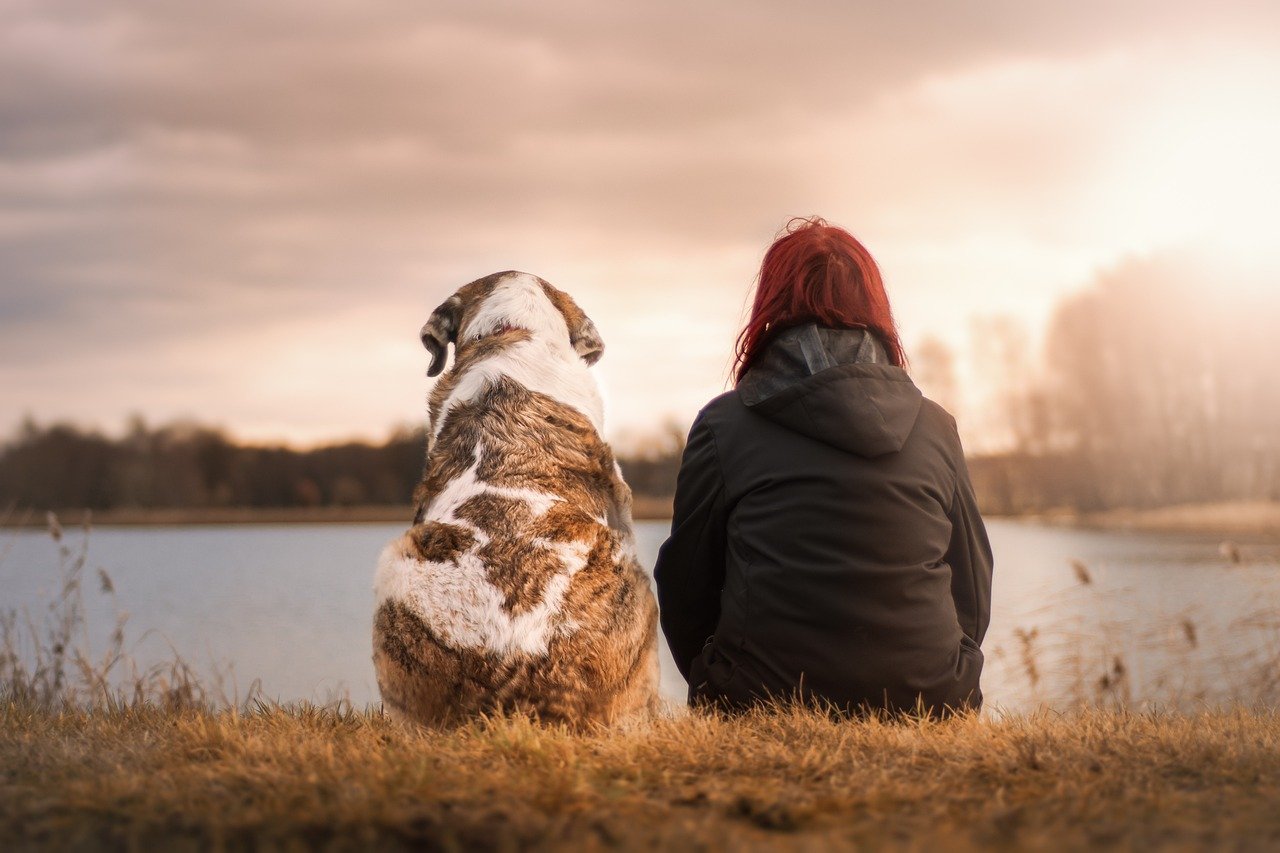Why We Love Animals
Every night on the local news, you can rely on three consistent topics: sports, weather, and an animal interest story.
The animal stories are always sweet, like the one about the trail guide down in Big South Fork who slept in an open field during COVID, bottle-feeding a motherless Colt whom he later named Corona. Today, when Bobby calls Corona’s name, the gray horse peers behind a paddock shed and gallops in his daddy’s direction.
Some of the stories show animal courage, like the dolphin cluster that encircled a man and his daughter swimming far from shore, furiously flapping their tails to keep a dangerous great white shark at bay. Or Salty, the guide dog who ushered his owner out of the World Trade Center on 9/11. Parrots and cats have warned their families of fire, and how about that bunny who kept her owner from entering a diabetic coma?
Sometimes, stories are so deeply emotional that they inspire the world, like that of kindred spirits Cody Dorman and his best friend Cody’s Wish, the retired Champion Horse of the Year (2024) Thoroughbred racehorse. Their synchronistic human-animal relationship propelled both boy and horse in ways no one ever expected or imagined.
Throughout history, globally and cross-culturally, humans and animals have always known a remarkable connection.
The human-animal bond has evolved from an early business relationship into a soulful and salutary domestication. Most early human-animal interactions involved protection or work. Dogs guarded, tracked, and herded; cats reduced a diseased rodent population; horses and mules cleared cut trees; and they pulled the tiller, among many other jobs. During wars, armies relied on cavalry horses, sentry dogs, and carrier pigeons.
Today, animals of almost every variety have jobs in the mental health department, providing humans with fundamental emotional, physical, and social benefits. Therapy animals are in hospitals, hospices, and prisons where simply petting one releases endorphins, providing a positive impact on anxiety, depression, PTSD, and other psychological challenges. Caring for an animal has proven to generate a focus, purpose, and empathy that helps lengthen lives and even reintegrate members of society.
As human and animal jobs have changed, so have our relationships and expectations. In a recent poll, 95% of respondents said they consider their pets family members. The Wall Street Journal reports that caring for pets after death is no longer fringe. “Pet trusts like the one created by billionaire Leona Helmsley, who set aside $12 million for her Maltese, Trouble, are still mostly for the rich…but more common is the pet directive, a section in a will that lets you name guardians for your pets and leave money intended for their care.”
Estate planning may seem extreme until you scroll through the vast array of furry, feathered reels on TikTok or stroll the pet aisle at TJ Maxx. Starbucks hands out pup cups; bank tellers return treats with the deposit receipt. Rover is now welcome at restaurants, and hotels reserve him a space in the suite. There are delivery services, subscription boxes, spas, playgrounds, and airport facilities for our pack-and-go pets. Spain has even granted legal rights to pets in case of a divorce.
The U.S. is not alone in its animal obsession. 50% of the world’s population has at least one pet. Argentina is in the lead, with 80% welcoming at least one animal at some point. There are over 90 million dogs in the U.S., but did you know that almost 60% of Russians own cats?
But WHY?
There are plenty of research articles that attempt to answer this question. Most point to the human need for companionship or empathy. The nurturing instinct and affection we have for animals are akin to family. Animals, especially domesticated pets, have the ability to read our emotions and mirror us, increasing the bond between us.
Artist Kelly Brewer and I are among the millions of humans who love animals and benefit each day from our connections with them. A quick glance at Kelly’s animal portfolio and it is clear animals are her favorite subject matter. We believe animals bring us joy and healing, and by tapping into our souls, they make us better humans.
This is why Kelly and I are excited to launch a new multimedia project, Kindred Spirits: A Celebration of the Human-Animal Connection.
For anyone who remembers the Common Wealth of Kentucky Project (2022), the structure and purpose of KINDRED SPIRITS is similar, except this time the connections we hope to illuminate are between humans and animals.
Like our last project, we will share part of the story as we go along, unfolding the project over time on our social media and here on this page, and the project will culminate with an inspirational, multi-sensory art exhibit, the sales of Kelly’s astounding animal artwork, and a beautiful book that will capture the project essence. Proceeds will benefit various animal and human charities, including the Jo B. Robertson Charitable Foundation.
We hope you will join us on this journey. We need your help finding as many human-animal stories as we can.
Click this LINK and tell us a story you know or personally experienced that highlights the deep connections we have with our animal friends. You can follow and message us on any of the social media platforms listed below. The subject matter is not limited geographically nor to domesticated, four-legged animals.
Let’s start sharing and celebrating our KINDRED SPIRIT stories.















